-
RESEARCH01-01-2017
Complex educational and care (geron)technology for elderly individuals/families experiencing Alzheimer’s disease
Revista Brasileira de Enfermagem. 2017;70(4):726-732
Abstract
RESEARCHComplex educational and care (geron)technology for elderly individuals/families experiencing Alzheimer’s disease
Revista Brasileira de Enfermagem. 2017;70(4):726-732
DOI 10.1590/0034-7167-2016-0687
Views0See moreABSTRACT
Objective:
To describe the contributions of the Integrated Multidisciplinary Care Group for Caregivers of Individuals with Alzheimer’s Disease as an educational and care (geron)technology in the context of Alzheimer’s disease in elderly individuals from the perspective of family members/caregivers.
Method:
Exploratory, descriptive study with a qualitative approach conducted with 13 family members/caregivers of elderly people participating in the support group of a university institution of the state of Rio Grande do Sul, Brazil. Data collected between January and April 2016 through a semi-structured interview were submitted to discursive textual analysis.
Results:
Family members/caregivers pointed out education and care as contributions of the group; education for care and for the future; exchange, socialization, and development of knowledge through the range of knowledge existing in the Group.
Conclusion:
The Group contributes as a (geron)technology of care and education for care in which knowledge is built and applied in practice, supporting the experienced disorders and improving the quality of care provided for elderly individuals with Alzheimer’s disease.
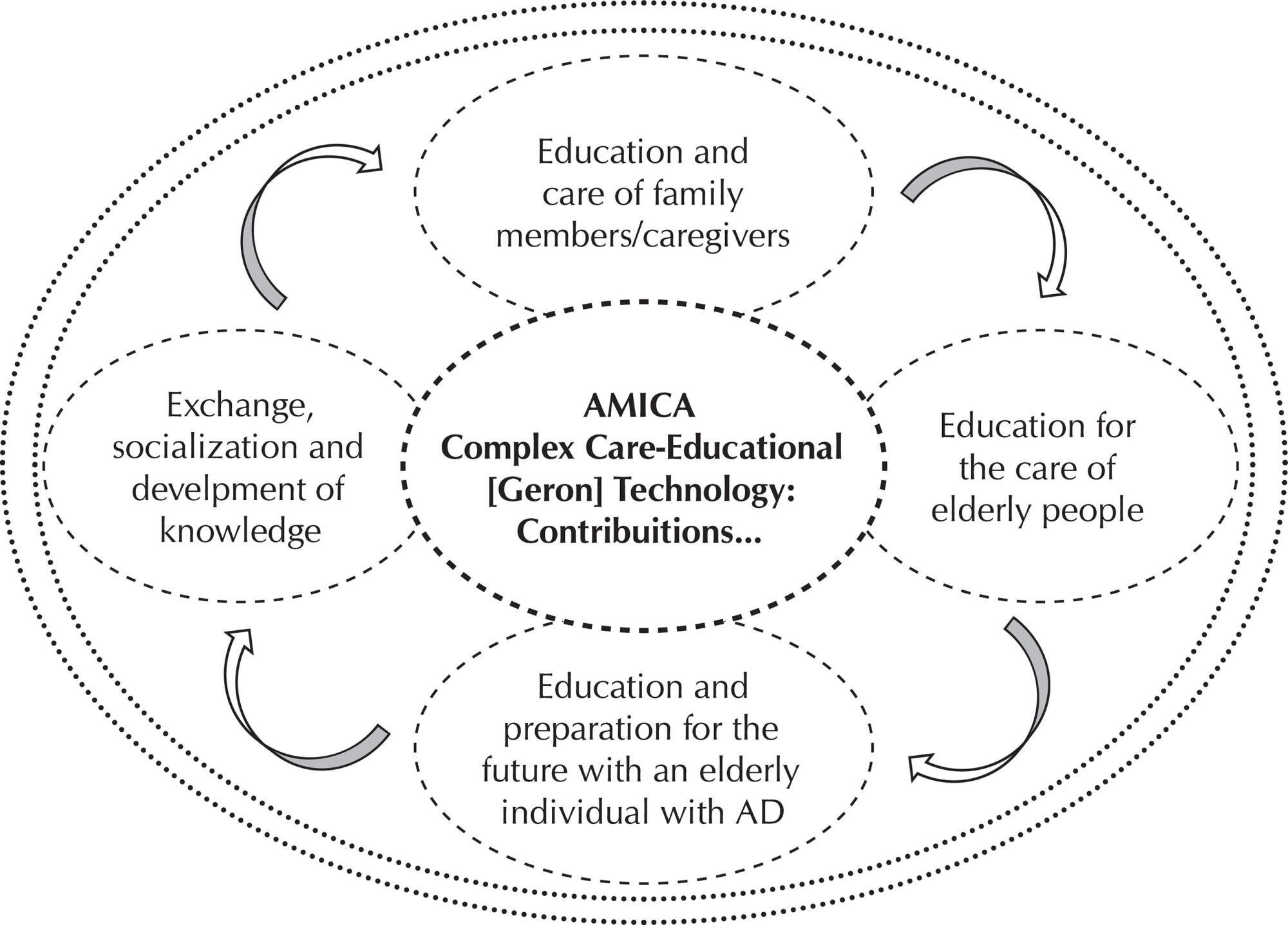
-
RESEARCH01-01-2017
Falls in institutionalized older adults: risks, consequences and antecedents
Revista Brasileira de Enfermagem. 2017;70(4):719-725
Abstract
RESEARCHFalls in institutionalized older adults: risks, consequences and antecedents
Revista Brasileira de Enfermagem. 2017;70(4):719-725
DOI 10.1590/0034-7167-2017-0107
Views0See moreABSTRACT
Objective:
To analyze the occurrence of falls in institutionalized elderly addressing the risks, consequences and antecedents.
Method:
Cross-sectional study carried out with 45 older adults in Long-Term Care Facilities for the Older adult in João Pessoa, Brazil, in June and July 2016. A socio-demographic questionnaire and the Berg Balance Scale were applied, classifying as risk of fall scores lower than 45. Descriptive statistics and tests were conducted: independent t-test, Anova (Tukey), Chi-square, Mann Whitney. Statistically significance was p <0.05. Data were processed in SPSS version 19.0.
Results:
A total of 66.7% (30) falls occurred, 20% (9) of them in the external area, with 66.7% (30) of the participants having hypertension as a previous disease and, as consequence, the fracture was highlighted with 11.2% (5). The Berg Scale had different scores when compared to the falls suffered by the elderly and previous diseases influenced the occurrence of falls (p <0.05).
Conclusion:
It is necessary to implement public financing policies or partnerships that allow environments adaptations aiming at reducing the risks of falls.
-
RESEARCH01-01-2017
Factors associated with the functional capacity of older adults with leprosy
Revista Brasileira de Enfermagem. 2017;70(4):711-718
Abstract
RESEARCHFactors associated with the functional capacity of older adults with leprosy
Revista Brasileira de Enfermagem. 2017;70(4):711-718
DOI 10.1590/0034-7167-2017-0091
Views0See moreABSTRACT
Objective:
to investigate the association between socio-demographic and clinical factors and the functional capacity of older adults with leprosy.
Method:
cross-sectional analytical study conducted in Fortaleza, Ceará, Brazil, with 77 older adult patients with leprosy in a referral service, through interview, medical records and application of the Katz Index and the Lawton and Brody Scale.
Results:
the mean age was 68.23 years, with prevalence of men, in stable union/married, with mean monthly family income of 2.04 minimum wages, positive bacillary index, clinical dimorphic form and grade zero disability. In the Lawton and Brody scale, independence (58.5%) was predominant and associated to the variables “living arrangement” and “educational attainment”. Total independence (87.0%) was predominant in the Katz Index and statistically associated to the variable monthly family income.
Conclusion:
most of the participants were classified as independent in the instruments used. Furthermore, the instruments pointed to a greater number of associations with socio-demographic and clinical factors not related to leprosy.
-
RESEARCH01-01-2017
Effects of supportive telephone counseling in the metabolic control of elderly people with diabetes mellitus
Revista Brasileira de Enfermagem. 2017;70(4):704-710
Abstract
RESEARCHEffects of supportive telephone counseling in the metabolic control of elderly people with diabetes mellitus
Revista Brasileira de Enfermagem. 2017;70(4):704-710
DOI 10.1590/0034-7167-2017-0089
Views0See moreABSTRACT
Objective:
the purpose of this study was to evaluate the efficacy of telephone-based support for the metabolic control of elderly patients with diabetes mellitus.
Method:
a pragmatic study was conducted in two groups, called G1 (n=36) and G2 (n=27), at a health unit from the countryside of São Paulo state. Patients in G1 group received telephone support over four months, through 16 telephone contacts with educational material; for the G2 group the educational material was mailed.
Results:
significant differences were found. The G1 group showed a reduction of the parameters of fasting glucose, as well as systolic and diastolic blood pressure. In G2 group a modest reduction was noted in some parameters, with no significant difference.
Conclusion:
telephone support was effective to deliver patient education to the diabetic elderly, leading to the reduction of fasting blood glucose. This, combined with other strategies, can contribute to reduce glycated hemoglobin (NCT 01972412).
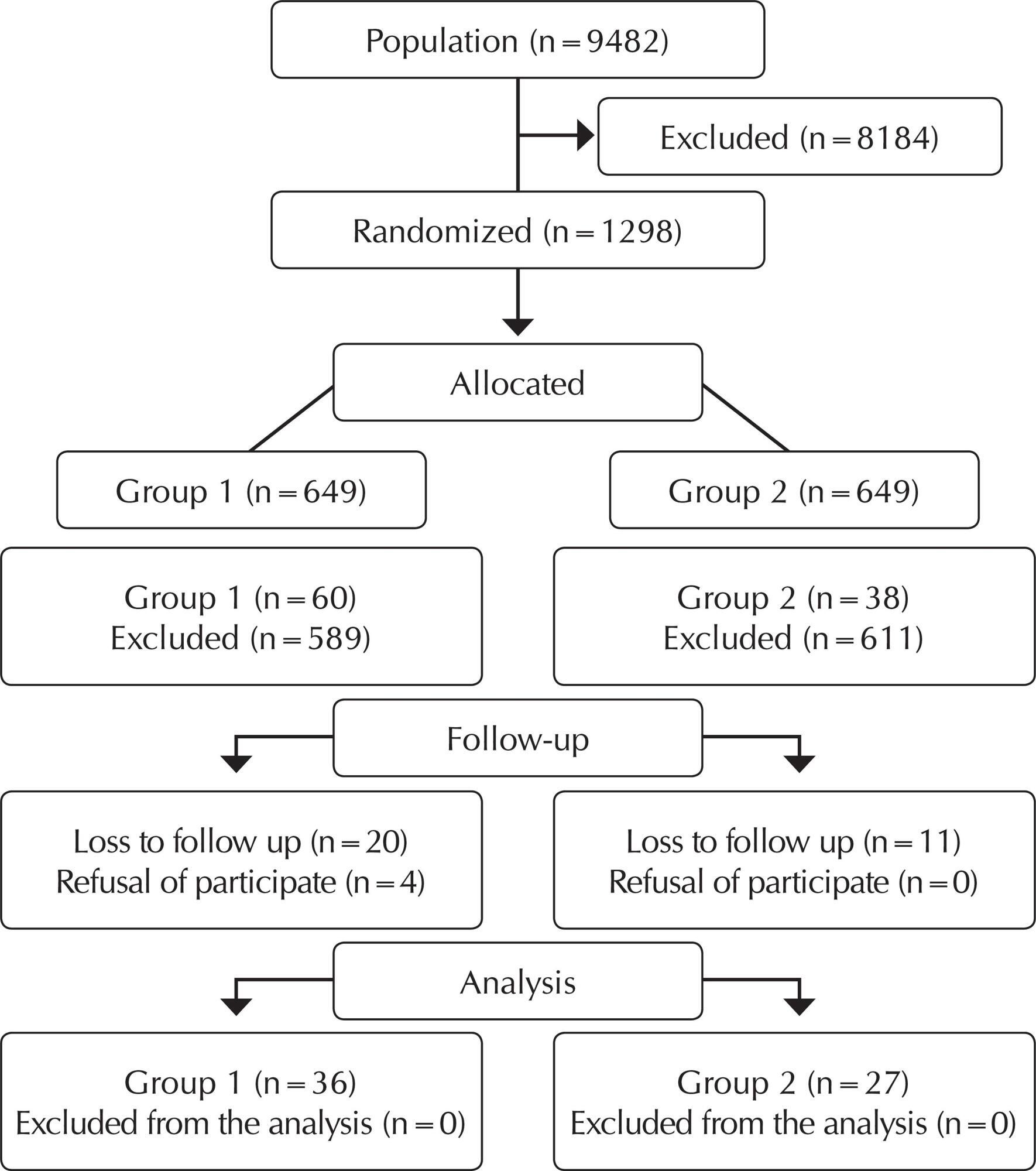
-
RESEARCH01-01-2017
Stress and optimism of elderlies who are caregivers for elderlies and live with children
Revista Brasileira de Enfermagem. 2017;70(4):697-703
Abstract
RESEARCHStress and optimism of elderlies who are caregivers for elderlies and live with children
Revista Brasileira de Enfermagem. 2017;70(4):697-703
DOI 10.1590/0034-7167-2017-0088
Views0See moreABSTRACT
Objective:
to evaluate the relation between stress and optimism of elderlies who are informal caregivers for elderlies and live with children.
Method:
cross-sectional study on 50 elderlies who provide care to elderlies, live with children, and are registered in the primary health care. The interviews occurred in the participant’s residence and we evaluated characteristics of the care-dependent elderly and of the children, sociodemographic characteristics, stress through the Perceived Stress Scale and optimism through the Pinto and Pais-Ribeiro Spirituality Scale, in the elderly caregiver. For statistical analysis we used the Spearman correlation test.
Results:
the mean level of stress was 23.9 points and of optimism was 3.3 points. Correlation analysis showed that the higher the level of optimism the significantly lower the level of perceived stress of elderlies who provided care to elderlies and lived with children.
Conclusion:
inversely proportional correlation was identified between stress and optimism.
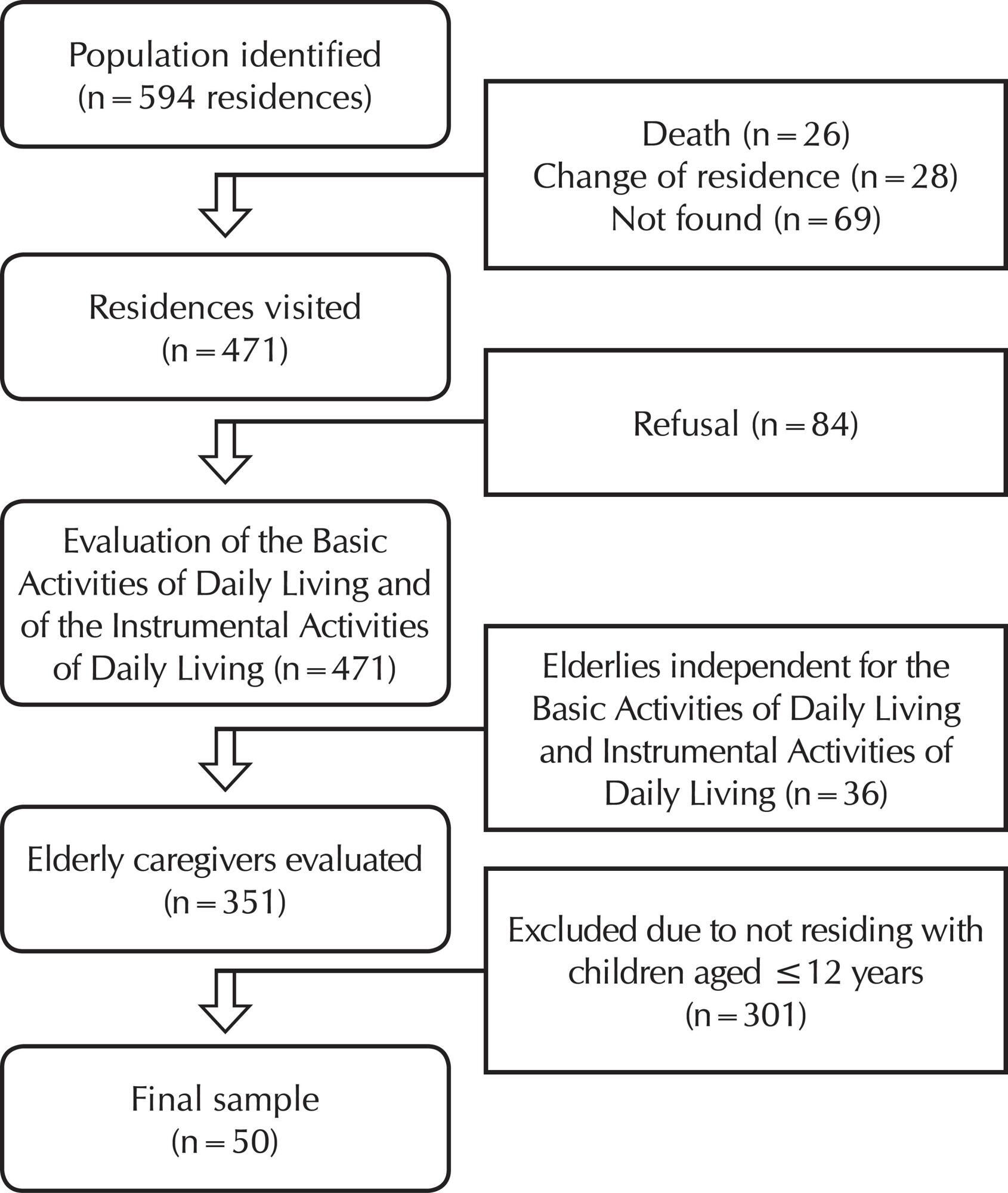
-
RESEARCH01-01-2017
Spiritual well-being and quality of life of older adults in hemodialysis
Revista Brasileira de Enfermagem. 2017;70(4):689-696
Abstract
RESEARCHSpiritual well-being and quality of life of older adults in hemodialysis
Revista Brasileira de Enfermagem. 2017;70(4):689-696
DOI 10.1590/0034-7167-2017-0006
Views0See moreABSTRACT
Objective:
To analyze the relationship between spiritual well-being, sociodemographic, economic, religious, and health variables and the quality of life of older adults undergoing hemodialysis.
Method:
This was a cross-sectional and correlational study conducted with 169 older adults undergoing hemodialysis. The researchers conducted interviews to collect sociodemographic, economic, religious, and health data and applied the Spiritual Well-Being Scale (SWBS) and the WHO quality of life assessment (WHOQOL-BREF and WHOQOL-OLD).
Results:
Most of the older adults attained a moderate level of total spiritual well-being (SWB). In terms of QOL, the psychological domain (66.8; sd=13.9) and social relationships domain (66.8; sd=15.1) presented the highest mean scores. The WHOQOL-BREF domains were positively correlated with the SWB scale, with statistical significance among all domains and subscales except the environmental domain.
Conclusion:
The QOL of older adults was associated with the construct of SWB, either positively or negatively.
-
RESEARCH01-01-2017
Vulnerability of caregivers of the elderly with dementia: a cross-sectional descriptive study
Revista Brasileira de Enfermagem. 2017;70(4):682-688
Abstract
RESEARCHVulnerability of caregivers of the elderly with dementia: a cross-sectional descriptive study
Revista Brasileira de Enfermagem. 2017;70(4):682-688
DOI 10.1590/0034-7167-2016-0579
Views0See moreABSTRACT
Objective:
to evaluate the sociodemographic and clinical profile of the caregivers and its relation with the overburden from the care of the elderly with dementia.
Method:
a cross-sectional descriptive study; the sample was non-probabilistic, developed with caregivers of elderly people with dementia. The field of investigation was the Health Care Center of the Elderly and their Caregivers (CASIC), in the city of Niterói, Rio de Janeiro, Brazil. Data collection took place from February to June 2016, with the following instruments: a sociodemographic questionnaire and Zarit scale.
Results:
fifty percent of the caregivers presented moderate overburden; 38% presented little overburden; and 12% moderate/severe overburden. It was observed that the median of weekly care hours increases as the overburden increases. Caregivers with moderate to severe overburden, in the majority, do not share care.
Conclusion:
it is clear that the overburden of care places the caregiver in conditions of biological and psychological vulnerability.
-
RESEARCH01-01-2017
Therapeutic nursing care: transition in sexuality of the elderly caregiving spouse
Revista Brasileira de Enfermagem. 2017;70(4):673-681
Abstract
RESEARCHTherapeutic nursing care: transition in sexuality of the elderly caregiving spouse
Revista Brasileira de Enfermagem. 2017;70(4):673-681
DOI 10.1590/0034-7167-2016-0256
Views0See moreABSTRACT
Objective:
To understand the transitions experienced, and the conditions and expected response patterns to changes in sexuality of the spouse-caregiver of the elderly, during progression of the dementia process.
Method:
A qualitative research study, conducted at the neurogeriatric clinic between May of 2014 and May of 2015. An intensive, individual interview was administered to 12 elderly caregivers. Thematic content analysis was applied, using the theoretical model of Transition Theory.
Results:
Seven categories emerged, involving relationship and conjugal sexuality; disease repercussions; care and professional approach; attitudes, beliefs and social imagery of sexuality and care; family relationship and redefining of sexuality.
Final considerations:
Family development and marital life, the aspects of formation and development of sexuality, the specifics that involved living and caring for the other were understood, with successive events and changes influenced by old age, dementia, beliefs and social imagery.
-
08-30-2024
Fatores determinantes para à hesitação vacinal contra a COVID-19 em brasileiros: estudo utilizando modelagem de equações estruturais
Revista Brasileira de Enfermagem. 2024;77:e20240112
Abstract
Fatores determinantes para à hesitação vacinal contra a COVID-19 em brasileiros: estudo utilizando modelagem de equações estruturais
Revista Brasileira de Enfermagem. 2024;77:e20240112
DOI 10.1590/0034-7167-2024-0112
Views0See moreRESUMEN
Objetivos:
investigar los factores que influyen en la vacilación ante la vacuna contra la COVID-19 entre los brasileños.
Métodos:
esta investigación empleó un enfoque observacional y analítico, utilizando una encuesta en línea. La recolección de datos se llevó a cabo en 2020 y el análisis de los datos se realizó utilizando el modelado de ecuaciones estructurales.
Resultados:
la prevalencia de la vacilación ante la vacuna fue del 27,5% (1182 individuos). Existe una correlación negativa entre la creencia en teorías de conspiración y la influencia social. Entre las diversas creencias asociadas con las intenciones de vacunación, solo las creencias en conspiraciones mostraron un valor predictivo significativo. Así, los resultados sugieren que las creencias personales impactan significativamente la vacilación ante la vacunación y también indican que la confianza en los órganos gubernamentales está inversamente relacionada con la vacilación.
Conclusiones:
la vacilación ante la vacuna emerge como un fenómeno multifacético influenciado por una amplia gama de factores, incluyendo las creencias personales, la confianza en los órganos gubernamentales y los sistemas de salud.
-
ORIGINAL ARTICLE08-30-2024
Determining factors for COVID-19 vaccine hesitancy among Brazilians: a study using structural equation modeling
Revista Brasileira de Enfermagem. 2024;77:e20240112
Abstract
ORIGINAL ARTICLEDetermining factors for COVID-19 vaccine hesitancy among Brazilians: a study using structural equation modeling
Revista Brasileira de Enfermagem. 2024;77:e20240112
DOI 10.1590/0034-7167-2024-0112
Views0See moreABSTRACT
Objectives:
to investigate the factors influencing vaccine hesitancy against COVID-19 among Brazilians.
Methods:
this research employed an observational and analytical approach, utilizing a web-based survey. Data collection took place in 2020, and data analysis was conducted using structural equation modeling.
Results:
the prevalence of vaccine hesitancy was found to be 27.5% (1182 individuals). There is a negative correlation between belief in conspiracy theories and social influence. Among the various beliefs associated with vaccination intentions, only conspiracy beliefs exhibited significant predictive value. Thus, the findings suggest that personal beliefs significantly impact hesitancy towards vaccination, and also indicate that trust in governmental bodies is inversely related to hesitancy.
Conclusions:
vaccine hesitancy emerges as a multifaceted phenomenon influenced by a complex array of factors, including personal beliefs, trust in governmental bodies, and healthcare systems.

-
ORIGINAL ARTICLE08-30-2024
Factors associated with university students’ knowledge about HIV and pre- and post-exposure prophylaxis
Revista Brasileira de Enfermagem. 2024;77:e20240092
Abstract
ORIGINAL ARTICLEFactors associated with university students’ knowledge about HIV and pre- and post-exposure prophylaxis
Revista Brasileira de Enfermagem. 2024;77:e20240092
DOI 10.1590/0034-7167-2024-0092
Views0See moreABSTRACT
Objectives:
to analyze the factors associated with university students’ knowledge about HIV and pre- and post-exposure prophylaxis.
Methods:
a cross-sectional study was conducted with 503 university students from a southern state in Brazil; data were collected using a characterization tool and a questionnaire containing 16 statements about the topic; descriptive measures and Poisson regression models with robust variance were used for analysis.
Results:
the prevalence of adequate knowledge (i.e., scoring more than 12 correct answers) was 27.83%; students older than 24 years, enrolled in health-related courses, who had not engaged in sexual relations in the last quarter, with a history of rapid HIV testing, and who knew or had heard about the prophylaxes showed a higher likelihood of scoring more than 12 correct answers.
Conclusions:
generally, the knowledge of young people about HIV and its prophylaxes was found to be inadequate and influenced by sociodemographic, educational, and behavioral factors.

-
ORIGINAL ARTICLE08-30-2024
Accessibility to prenatal care at the Street Outreach Office: nurse perceptions in northern Brazil
Revista Brasileira de Enfermagem. 2024;77:e20240090
Abstract
ORIGINAL ARTICLEAccessibility to prenatal care at the Street Outreach Office: nurse perceptions in northern Brazil
Revista Brasileira de Enfermagem. 2024;77:e20240090
DOI 10.1590/0034-7167-2024-0090
Views0See moreABSTRACT
Objectives:
to understand nurse perspectives regarding homeless pregnant women’s accessibility to prenatal care.
Methods:
a qualitative study, with analysis based on the concept of accessibility. Semi-structured interviews were carried out with 11 nurses who work at the Street Outreach Office in northern Brazil.
Results:
nurses are faced with geographic barriers and dangerous situations in border regions, recognizing that there is a context of physical, sexual and psychological violence that involves homeless pregnant women who seek care at the Street Outreach Office. Street Outreach Office nurses’ work occurs in conjunction with other services in the Health Care Network. The implementation of educational measures is a powerful strategy, as is establishing links with women.
Final Considerations:
the Street Outreach Office’s work provides meetings with pregnant women on site in the territory, which can provide geographic and socio-organizational accessibility to prenatal care.
-
ORIGINAL ARTICLE08-30-2024
Risk of smoking cessation treatment dropout: a cohort to help (re)think care
Revista Brasileira de Enfermagem. 2024;77:e20230537
Abstract
ORIGINAL ARTICLERisk of smoking cessation treatment dropout: a cohort to help (re)think care
Revista Brasileira de Enfermagem. 2024;77:e20230537
DOI 10.1590/0034-7167-2023-0537
Views0See moreABSTRACT
Objectives:
to evaluate the relative risk of smoking cessation treatment dropout during its intensive phase.
Methods:
a retrospective and quantitative cohort study was developed from the electronic medical records of individuals who started smoking cessation treatment between 2015 and 2019 at a specialty clinic in a city in the interior of São Paulo, Brazil. The relative risk of dropping out of treatment was calculated using the Poisson regression model.
Results:
it was observed that out of the 396 (100.0%) individuals who started the treatment, 109 (27.5%) abandoned it before the end of the intensive phase. For each one-year increase in age, the risk of dropping out of smoking cessation treatment decreased by an average of 2%.
Conclusions:
the risk of dropping out of smoking cessation treatment is higher among younger individuals. It is necessary to rethink the care offered to younger adults to promote the continuity of treatment.

-
REVIEW08-30-2024
Impact of financial toxicity on adults with cancer during the COVID-19 pandemic: an integrative review
Revista Brasileira de Enfermagem. 2024;77:e20240078
Abstract
REVIEWImpact of financial toxicity on adults with cancer during the COVID-19 pandemic: an integrative review
Revista Brasileira de Enfermagem. 2024;77:e20240078
DOI 10.1590/0034-7167-2024-0078
Views0See moreABSTRACT
Objectives:
to identify the repercussions of financial toxicity on the lives of adult cancer patients during the COVID-19 pandemic.
Methods:
an integrative review was conducted using the PubMed, Web of Science, Scopus, and Embase databases, as well as the Virtual Health Library portal, in March 2023.
Results:
out of 62 studies found, 13 were included for analysis. The primary repercussions of financial toxicity included difficulties in covering basic expenses such as food, housing, medication, transportation, and internet access; increased anxiety and concerns related to health and financial situations; reduction or absence of income; challenges in obtaining treatment or accessing healthcare services; rising expenses; and telemedicine as a less burdensome alternative.
Conclusions:
the pandemic has exacerbated financial toxicity; therefore, healthcare teams must recognize it as an adverse event of oncological treatment and understand its potential to affect various aspects of patients’ lives.

-
ORIGINAL ARTICLE08-30-2024
Negative affectivity in university students and its relationship with academic performance and professional outlook after COVID-19
Revista Brasileira de Enfermagem. 2024;77:e20240040
Abstract
ORIGINAL ARTICLENegative affectivity in university students and its relationship with academic performance and professional outlook after COVID-19
Revista Brasileira de Enfermagem. 2024;77:e20240040
DOI 10.1590/0034-7167-2024-0040
Views0See moreABSTRACT
Objectives:
to evaluate the prevalence of negative affectivity in university students in the post-COVID-19 pandemic context and its relationship with academic performance and professional outlook.
Methods:
a cross-sectional study was conducted with undergraduate students from a public university in Minas Gerais between September 2022 and September 2023. Data were collected using a sociodemographic and psychosocial characterization questionnaire and the Depression, Anxiety, and Stress Scale 21. The relationships between negative affectivity, academic performance, and professional outlook were verified using the Kruskal-Wallis test, with a significance level of 5%.
Results:
a total of 585 students participated in the study. A high prevalence of depression, anxiety, and stress was found among university students in the post-COVID-19 context, with a notable severity of anxiety. A negative association was detected between the investigated negative affectivity, academic performance, and professional outlook.
Conclusions:
the results indicate an emotional vulnerability in university students, with a relationship between negative affectivity and a decline in academic performance and professional outlook.
-
REVIEW08-30-2024
Educational actions conducted during the pandemic with primary health care professionals: a scoping review
Revista Brasileira de Enfermagem. 2024;77:e20230352
Abstract
REVIEWEducational actions conducted during the pandemic with primary health care professionals: a scoping review
Revista Brasileira de Enfermagem. 2024;77:e20230352
DOI 10.1590/0034-7167-2023-0352
Views0See moreABSTRACT
Objectives:
to map the educational actions conducted with primary health care professionals during the COVID-19 pandemic.
Methods:
a scoping review conducted in August 2023, which covered databases such as CINAHL, Medline, LILACS, IBECS, BDENF, and Web of Science. In total, 32 publications were analyzed through content analysis.
Results:
the primary beneficiaries of the educational actions included 69% physicians, 56% nurses, 25% pharmacists, 13% social workers and dentists, 9% psychologists, community health agents, and laboratory professionals, and 6% nursing technicians, nutritionists, and physical educators. The predominant educational interventions were training sessions (mentioned in 19 publications), followed by Continuing Health Education (10 publications) and Continuing Education (three publications).
Final Considerations:
the educational interventions demonstrated positive impacts on professional practice, particularly the Continuing Health Education actions, which were notable for stimulating critical problem-solving among professionals.

-
ORIGINAL ARTICLE06-17-2024
Quality of life associated with nursing professionals’ individual resources and work
Revista Brasileira de Enfermagem. 2024;77(3):e20230476
Abstract
ORIGINAL ARTICLEQuality of life associated with nursing professionals’ individual resources and work
Revista Brasileira de Enfermagem. 2024;77(3):e20230476
DOI 10.1590/0034-7167-2023-0476
Views0See moreABSTRACT
Objectives:
to assess the physical and mental components of nursing professionals’ quality of life and associate them with individual, health and work characteristics.
Methods:
cross-sectional research, with nursing professionals from a university hospital in São Paulo. Own questionnaire and validated instruments were applied.
Results:
the overall quality of life was compromised. The physical component was lower in relation to low family income and among those who perceived greater control/pressure at work, and better for those who practiced physical activity and had support of leader and organization. The mental component was lower in professionals who reported dissatisfaction with work, worse self-rated physical health and were older. Scores for both components reduced due to work-related illnesses, worse work ability and increased daytime sleepiness.
Conclusions:
quality of life was statistically associated with controllable institutional factors and individual resources that, except age, can be promoted.
-
ORIGINAL ARTICLE06-17-2024
Social protection in areas vulnerable to tuberculosis: a mixed methods study in São Luís, Maranhão
Revista Brasileira de Enfermagem. 2024;77(3):e20230428
Abstract
ORIGINAL ARTICLESocial protection in areas vulnerable to tuberculosis: a mixed methods study in São Luís, Maranhão
Revista Brasileira de Enfermagem. 2024;77(3):e20230428
DOI 10.1590/0034-7167-2023-0428
Views0See moreABSTRACT
Objectives:
to analyze the risk areas for tuberculosis and the influences of social protection on the development of treatment for the disease in the municipality of São Luís, Maranhão.
Methods:
this is explanatory sequential mixed method research. In the quantitative phase, the data were obtained from the Notifiable Diseases Information System from 2010 to 2019, with georeferencing being carried out to identify areas vulnerable to tuberculosis. In the qualitative phase, semi-structured interviews were carried out with individuals who received social benefits.
Results:
7,381 cases were geocoded, and, from the purely spatial scanning analysis, it was possible to identify 13 spatial clusters of risk. As for the interviews, there was a positive relationship between patient improvement and receiving benefits.
Conclusions:
geographic space and social determinants are relevant for reorienting monitoring actions for the conditions that generate the health-disease process.
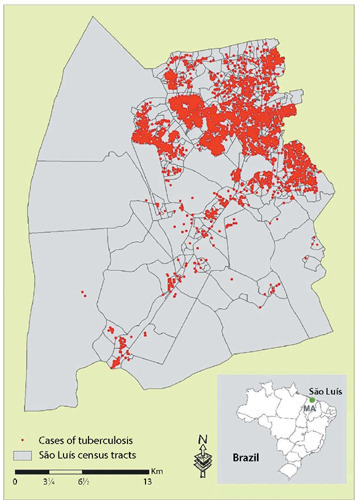
-
ORIGINAL ARTICLE06-17-2024
Giving meaning to internalized violence throughout life by older adults living in rural areas
Revista Brasileira de Enfermagem. 2024;77(3):e20230163
Abstract
ORIGINAL ARTICLEGiving meaning to internalized violence throughout life by older adults living in rural areas
Revista Brasileira de Enfermagem. 2024;77(3):e20230163
DOI 10.1590/0034-7167-2023-0163
Views0See moreABSTRACT
Objectives:
to understand the meanings of violence internalized throughout life by older adults living in rural areas.
Methods:
a qualitative study, anchored in the Symbolic Interactionism theoretical framework and the Grounded Theory methodological framework in the constructivist aspect. Data collection occurred through individual interviews. Data were coded using the Atlas.ti software.
Results:
it was possible to identify that the context of rural areas strengthens patriarchy culture as well as contributing to violence silence and naturalization. It was also found that violence is a product of social inequality and gender inequality.
Final Considerations:
older adults living in rural areas internalized the violence suffered in a unique way, and this scenario’s specific aspects can increase intra-family abuse, as there is a patriarchal culture that promotes social and gender inequality.
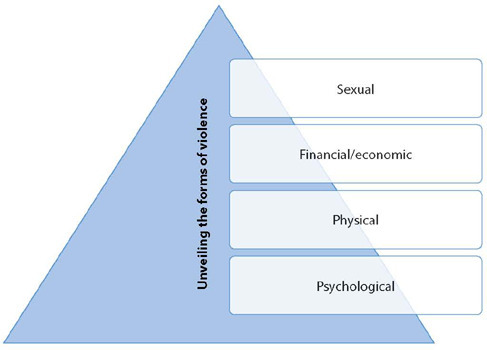
-
ERRATUM06-14-2024
ERRATUM
Revista Brasileira de Enfermagem. 2024;77(2):e2024n2e06
Abstract
ERRATUMERRATUM
Revista Brasileira de Enfermagem. 2024;77(2):e2024n2e06
DOI 10.1590/0034-7167.20247702e06
Views0In the article “Is there scientific relevance to the plot of films and documentaries about eating disorders?”, with DOI number: , published in Revista Brasileira de Enfermagem, 2024;77(1):e20220547, page 7:Where it read:[…]See more -
ERRATUM06-14-2024
ERRATUM
Revista Brasileira de Enfermagem. 2024;77(2):e2024n2e05
Abstract
ERRATUMERRATUM
Revista Brasileira de Enfermagem. 2024;77(2):e2024n2e05
DOI 10.1590/0034-7167.20247702e05
Views0In the article “Educational technologies used to promote self-care for people with diabetes mellitus: integrative review”, with DOI number: , published in Revista Brasileira de Enfermagem, 2023;76(Suppl 4):e20230049, in the title:Where it read:[…]See more -
REVIEW06-14-2024
Lean and/or Six Sigma for process optimization in the perioperative period: an integrative review
Revista Brasileira de Enfermagem. 2024;77(2):e20230431
Abstract
REVIEWLean and/or Six Sigma for process optimization in the perioperative period: an integrative review
Revista Brasileira de Enfermagem. 2024;77(2):e20230431
DOI 10.1590/0034-7167-2023-0431
Views0See moreABSTRACT
Objective:
To analyze the evidence on the influence of Lean and/or Six Sigma for process optimization in the perioperative period.
Methods:
Integrative review carried out in the MEDLINE (PubMed), Web of Science, EMBASE, CINAHL, Scopus and LILACS databases on the use of Lean and/or Six Sigma to optimize perioperative processes. The studies included were analyzed in three thematic categories: flow of surgical patients, work process and length of stay.
Results:
The final sample consisted of ten studies, which covered all operative periods. Lean and/or Six Sigma make a significant contribution to optimizing perioperative processes.
Final considerations:
Lean and/or Six Sigma optimize perioperative processes to maximize the achievement of system stability indicators, making it possible to identify potential problems in order to recognize them and propose solutions that can enable the institution of patient-centered care.
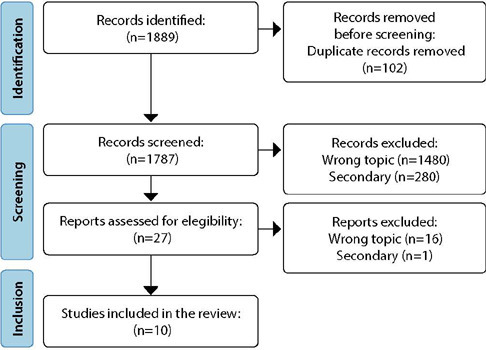
-
ORIGINAL ARTICLE06-14-2024
Strategies used by nurses regarding underreporting of rural work accidents due to pesticide use
Revista Brasileira de Enfermagem. 2024;77(2):e20230384
Abstract
ORIGINAL ARTICLEStrategies used by nurses regarding underreporting of rural work accidents due to pesticide use
Revista Brasileira de Enfermagem. 2024;77(2):e20230384
DOI 10.1590/0034-7167-2023-0384
Views0See moreABSTRACT
Objective:
To learn the strategies used regarding underreporting of pesticide use in rural areas.
Methods:
A qualitative study was carried out in eight primary healthcare units in rural areas and two emergency care units in a municipality in southern Brazil. Data collection took place in 2023 through interviews. Twenty professional nurses participated. The data was submitted to content analysis.
Results:
The strategies identified were lifelong and continuing education for the professionals who carry out the notification, active search and training of workers who deal directly with this type of substance, computerizing the notification by filling in the forms online, and carrying out research on the subject.
Final considerations:
Nurses play an important role in reporting occupational accidents caused by the use of pesticides, improving occupational safety in rural areas.

-
06-14-2024
Teoria de médio alcance do diagnóstico de enfermagem sobrepeso
Revista Brasileira de Enfermagem. 2024;77(2):e20230372
Abstract
Teoria de médio alcance do diagnóstico de enfermagem sobrepeso
Revista Brasileira de Enfermagem. 2024;77(2):e20230372
DOI 10.1590/0034-7167-2023-0372
Views0See moreRESUMEN
Objetivo:
Construir una teoría de rango medio para el diagnóstico de enfermería Sobrepeso en adolescentes y adultos jóvenes.
Métodos:
Estudio metodológico a la luz de los marcos teóricos de Roy y de Lopes, Silva y Herdman. Un total de 3.925 artículos fueron recuperados y evaluados utilizando el software State of the Art Through Systematic Review. La muestra final fue de 28 artículos.
Resultados:
Los resultados convergieron en 3 atributos esenciales, 13 antecedentes y 7 consecuencias. Se construyó una teoría de rango medio compuesta por un diagrama ilustrado, 11 proposiciones y 12 relaciones causales.
Consideraciones finales:
A partir de la creación de la teoría, fue posible comprender mejor el diagnóstico de enfermería Sobrepeso en el contexto de adolescentes y adultos jóvenes. La comprensión de los fenómenos de enfermería contribuye para el avance y fortalecimiento de la ciencia de enfermería.
Search
Search in:
Nuvem de Tags
Adolescente (85) Atenção Primária à Saúde (239) COVID-19 (91) Criança (91) Cuidados de Enfermagem (269) Educação em Enfermagem (151) Educação em Saúde (139) Enfermagem (930) Enfermagem Pediátrica (86) Estudantes de Enfermagem (77) Estudos de Validação (131) Família (87) Idoso (208) Promoção da Saúde (99) Qualidade de Vida (104) Saúde do Trabalhador (86) Saúde Mental (145) Saúde Pública (82) Segurança do Paciente (150) Tecnologia Educacional (100)



